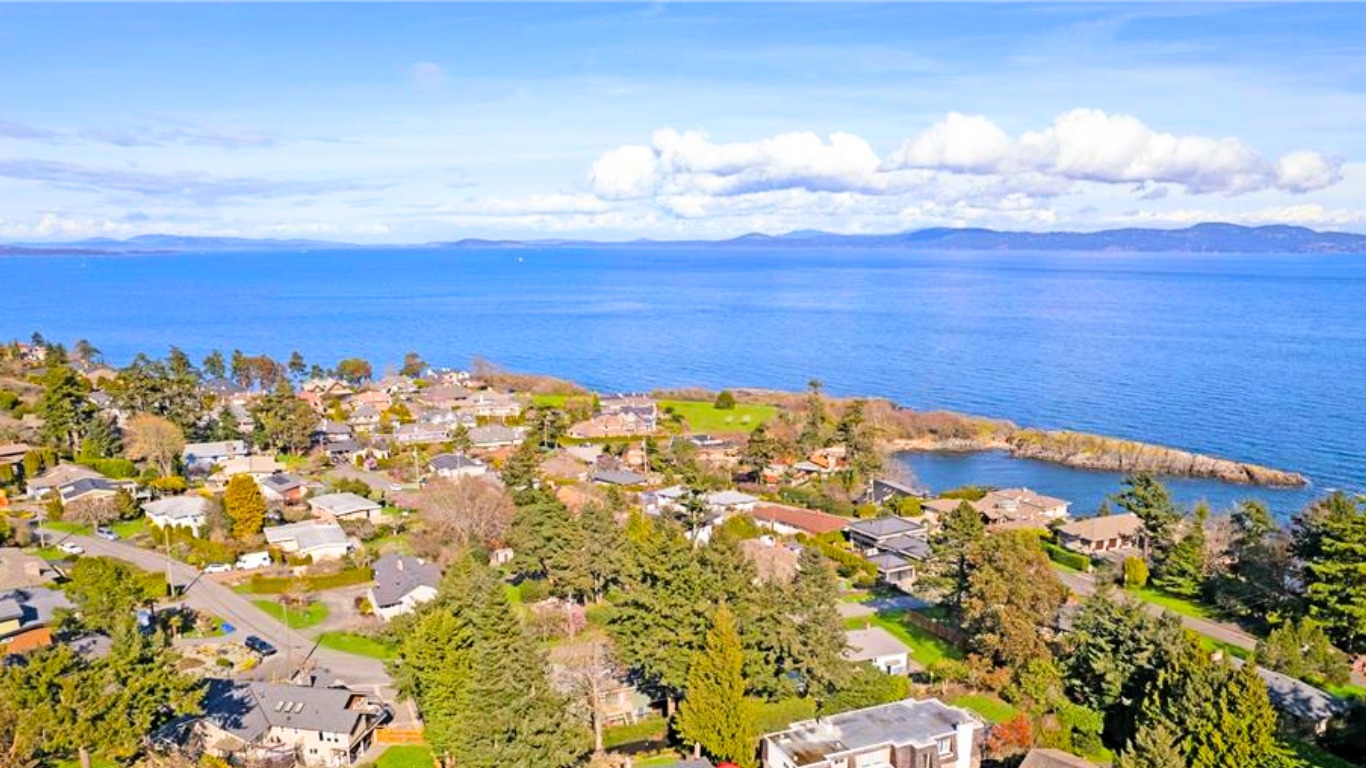The 2026 property assessments, which reflect assessed value as of July 1, 2025, have been announced for property owners of about 400,000 properties throughout Vancouver Island. The updated property values are now available at bcassessment.ca in addition to 2026 Property Assessment Notices being mailed to each property owner.
“The Vancouver Island housing market has been generally quite stable, which is reflected in the 2026 property assessments," according to BC Assessment Deputy Assessor, Matthew Butterfield. "Most homeowners can expect minimal assessment value changes in the range of -5% to +5%."
The summaries below provide estimates of typical 2025 versus 2026 assessed values of single family properties throughout Greater Victoria (based on median values):
City of Victoria - 2025 typical assessed | $1,113,000 & 2026 typical assessed | $1,128,000 » +1% change
District of Saanich - 2025 typical assessed | $1,157,000 & 2026 typical assessed | $1,164,000 » +1% change
Township of Esquimalt - 2025 typical assessed | $1,015,000 & 2026 typical assessed | $1,014,000 » 0% change
District of Oak Bay - 2025 typical assessed | $1,630,000 & 2026 typical assessed | $1,647,000 » +1% change
Town of View Royal - 2025 typical assessed | $1,095,000 & 2026 typical assessed | $1,089,000 » -1% change
City of Colwood - 2025 typical assessed | $996,000 & 2026 typical assessed | $982,000 » -1% change
City of Langford - 2025 typical assessed | $947,000 & 2026 typical assessed | $951,000 » 0% change
District of Metchosin - 2025 typical assessed | $1,243,000 & 2026 typical assessed | $1,221,000 » -2% change
District of Highlands - 2025 typical assessed | $1,263,000 & 2026 typical assessed | $1,231,000 » -3% change
District of Sooke - 2025 typical assessed | $797,000 & 2026 typical assessed | $786,000 » -1% change
Dist. of Central Saanich - 2025 typical assessed | $1,082,000 & 2026 typical assessed | $1,091,000 » +1% change
District of North Saanich - 2025 typical assessed | $1,346,000 & 2026 typical assessed | $1,366,000 » +1% change
Town of Sidney - 2025 typical assessed | $938,000 & 2026 typical assessed | $953,000 » +2% change
The summaries below provide estimates of typical 2025 versus 2026 assessed values of strata properties throughout Greater Victoria (based on median values):
City of Victoria - 2025 typical assessed | $561,000 & 2026 typical assessed | $551,000 » -2% change
District of Saanich - 2025 typical assessed | $597,000 & 2026 typical assessed | $597,000 » 0% change
Township of Esquimalt - 2025 typical assessed | $562,000 & 2026 typical assessed | $559,000 » -1% change
District of Oak Bay - 2025 typical assessed | $815,000 & 2026 typical assessed | $823,000 » +1% change
City of Langford - 2025 typical assessed | $562,000 & 2026 typical assessed | $556,000 » -1% change
Town of View Royal - 2025 typical assessed | $634,000 & 2026 typical assessed | $649,000 » +2% change
City of Colwood - 2025 typical assessed | $640,000 & 2026 typical assessed | $637,000 » 0% change
Town of Sidney - 2025 typical assessed | $631,000 & 2026 typical assessed | $650,000 » +3% change
Property owners who feel that their property assessment does not reflect market value as of July 1, 2025 or see incorrect information on their notice, should contact BC Assessment as indicated on their notice as soon as possible in January. If a property owner remains concerned about their assessment after speaking to one of our appraisers, they may submit a Notice of Complaint (Appeal) by February 2, for an independent review by a Property Assessment Review Panel. The Property Assessment Review Panels, independent of BC Assessment, are appointed annually by the provincial government, and typically meet from early February to mid-March to hear formal complaints.
Property owners can contact BC Assessment toll-free at 1-866-valueBC (1-866-825-8322) or online at bcassessment.ca. During the month of January, hours of operation are 8:30 a.m. to 5:00 p.m., Monday to Friday.
.png)
.png)

